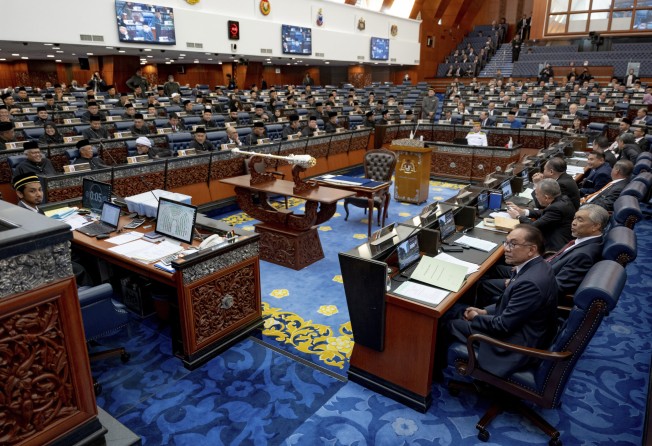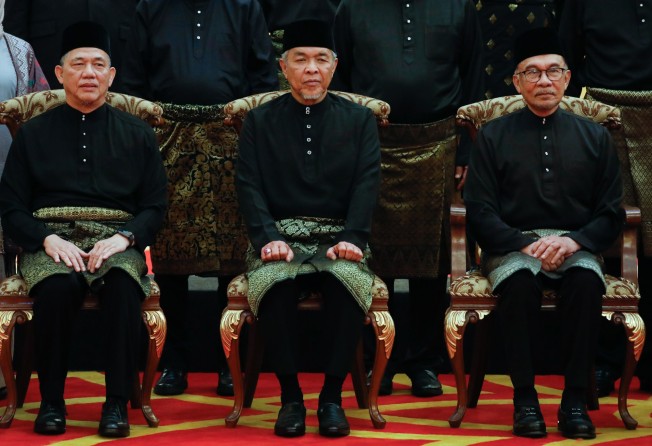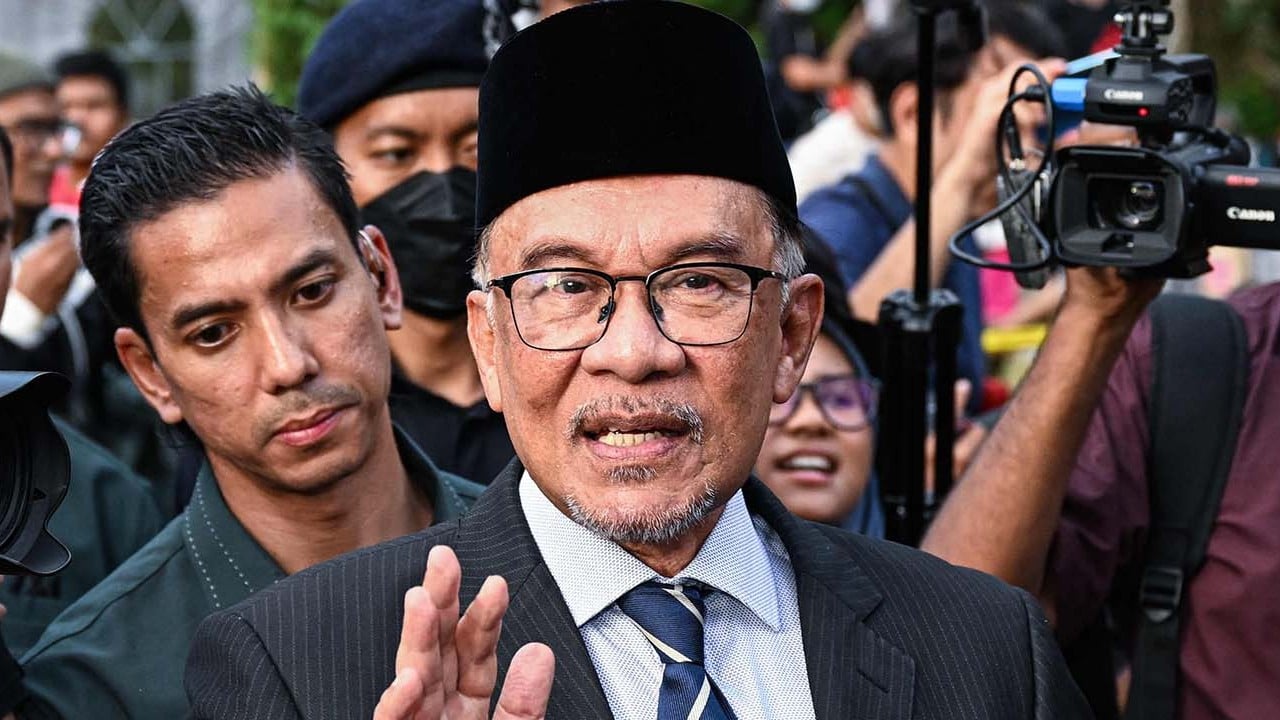
Malaysia’s PM Anwar Ibrahim set to plan reformist agenda after winning confidence vote
- Motion of confidence in Anwar’s leadership was passed by voice vote in parliament’s lower house, after nearly four hours of debating
- Anwar can now focus on laying out his priorities, including to revitalise the economy and ‘further open up the democratic space’, observers say

Malaysia’s Prime Minister Anwar Ibrahim on Monday consolidated his position in parliament as a majority of the 222-seat parliament voted in favour of his leadership in a historic confidence vote.
The motion of confidence in Anwar’s leadership was passed by voice vote in the Dewan Rakyat, or parliament’s lower house, after nearly four hours of debating.
The vote was earlier expected to provide concrete proof that the prime minister commanded support of a supermajority or two-thirds of the house via bloc voting. However, the numbers were reflected in the results of the vote for the new house speaker and two deputies.
After parliament was adjourned, opposition whip, Takiyuddin Hassan told reporters that they denied Anwar the chance to prove his numbers by not calling for a bloc vote, saying that the whole confidence matter is unnecessary as the King had already appointed Anwar as prime minister.

“The number of votes in support of the PM is therefore unknown,” said Takiyuddin who was a former law minister.
“Be it 148, 160, 222 … it’s unknown. That does not concern us.”
Anwar last month said he would call a confidence vote, in a risky gambit to prove that he had the mandate to rule following a deeply divisive national election that ended with no single party or coalition winning enough seats to earn the right to form the government.
The premier had said it was vital for him to secure the mandate of the house to lead the country, even if some of his supporters felt the move was not necessary.
“I am confident of obtaining it. If I can’t, then I will accept the will of the people,” Anwar said at a gathering at the prime minister’s residence last week.
The gamble has paid off for Anwar, who should now focus on laying out and explaining to the public what his priorities will be and where he plans to lead the nation, said Shazwan Mustafa Kamal, an associate director at corporate advisory firm Vriens & Partners.
“He has made it clear that alleviating people’s burdens, and cost of living, are high on the agenda. His next step would be to translate this into Budget 2023,” Shazwan said.
Shazwan said Anwar, who has long pledged to push ahead with systemic and structural reforms, has the benefit of a parliamentary supermajority which is needed to amend the country’s constitution.
“But it is not unconditional. He needs to be as inclusive as possible when it comes to decision-making, as there are many partners to appease,” he said.

Anwar’s Pakatan Harapan (PH) coalition sits atop a loose alliance with several rival groups, who came together under a unity government proposal mooted by Malaysia’s constitutional monarch to end a deadlock over who would lead the nation.
To form his administration, Anwar secured the backing of the former ruling Barisan Nasional (BN) coalition and the once-hostile GPS, the largest political bloc in Sarawak state on Malaysian Borneo.
The Malay-nationalist Perikatan Nasional alliance, led by former prime minister Muhyiddin Yassin, declined to be part of the proposal, and questioned how Anwar managed to claim the premiership despite their being the first to present proof to the king that they had the numbers to form the government.
Just days before the vote, Anwar and his new partners signed a memorandum of understanding which included a clause requiring all signatories to support him in all matters related to confidence and supply in parliament as well as anything that could have a bearing on the legitimacy of his administration.
Oh Ei Sun, a senior fellow at the Singapore Institute of International Affairs, however cautioned that any major reforms could hurt the vested interests of some of Anwar’s coalition partners, and it remains to be seen how far they would be willing to compromise.
But the vote “essentially means he bought some breathing space for his administration to hopefully focus a bit on revitalising the economy”, Oh said.
Adib Zalkapli, Malaysia director with political risk consultancy BowerGroupAsia, meanwhile said that it would be an exciting term with one former prime minister on the government’s backbench – Ismail Sabri Yaakob – and ex-leader Muhyiddin on the opposition bench.
“Anwar has been pushing for a reform agenda for decades, this is his chance to further open up the democratic space,” Adib said.
